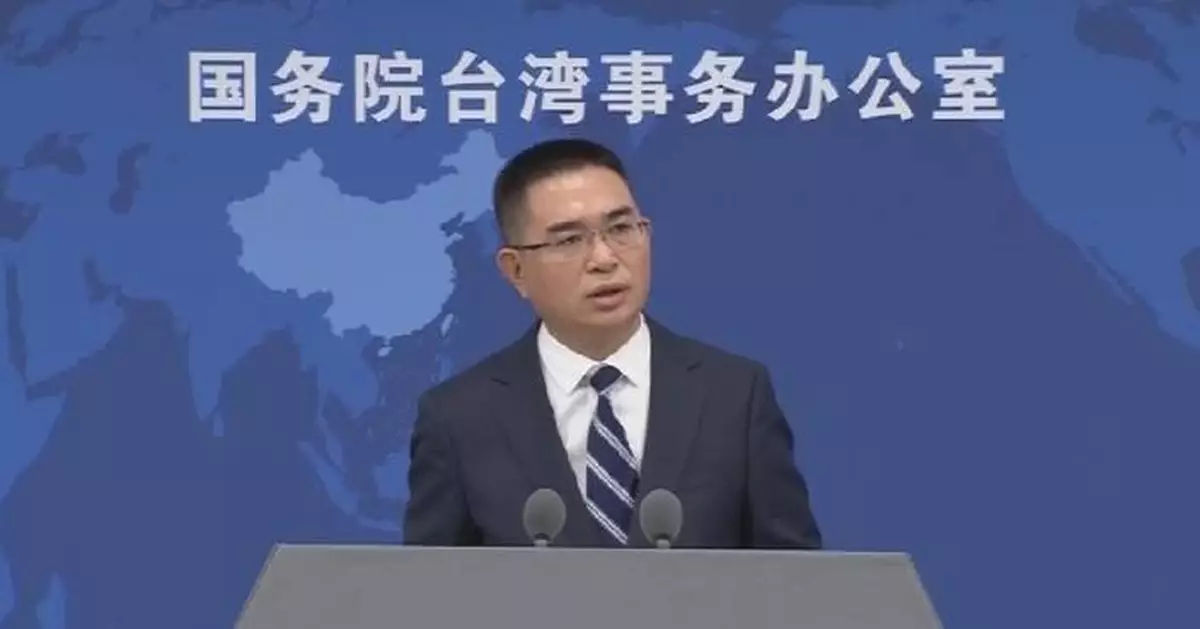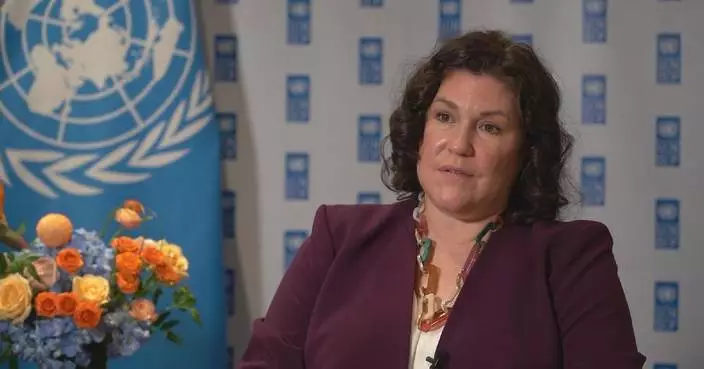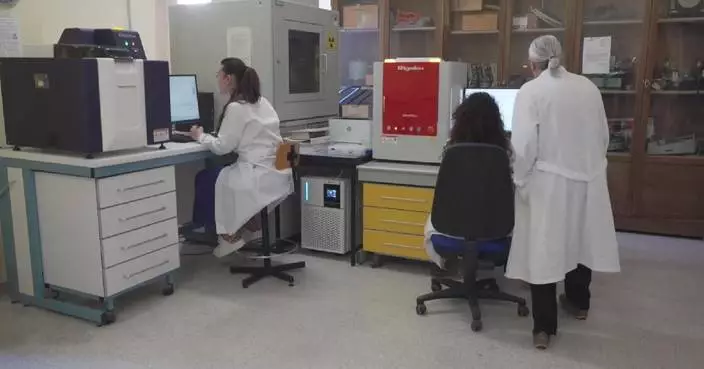The Democratic Progressive Party (DPP) authorities in Taiwan pose a real obstacle to normal exchanges and cooperation between the Chinese mainland and the Taiwan region, said Chen Binhua, a spokesman for the State Council Taiwan Affairs Office, on Wednesday.
Chen made the statement at a press conference in Beijing to denounce a claim from Taiwan's Mainland Affairs Council regarding Taiwan leader Lai Ching-te's speech on Oct 10. Despite the fact that Lai's separatist-minded speech reveals his intention for "Taiwan independence" and does nothing to ease cross-Strait tensions, the council still asserted that the speech conveyed a "goodwill" and "hopes" for healthy exchanges between the two sides.
"Lai Ching-te stubbornly maintains a separatist stance for 'Taiwan independence', continuously promoting the new 'two states' theory based on 'mutual non-subordination'. He attempts to seek 'equal exchanges' while denying the premise that both the mainland and Taiwan belong to one China. Lai's words are merely a tactic to mislead public opinion and shows no goodwill at all," Chen said in lashing out at the claim of so-called "goodwill" at the press conference.
In addition, Chen noted that the DPP uses "national security" as an excuse to severely hinder normalization of cross-Strait exchange.
"In fact, the DPP authorities have used various means to obstruct and limit cross-Strait exchanges and cooperation for their own selfish interests for some time. They have used so-called 'national security concerns' as a weapon to hinder normal interactions between people from both sides, largely staging 'green terror' on the island and restricting the public's freedom to travel to the mainland. The DPP authorities are a real barrier to normalizing across-Strait interaction and collaboration," Chen said.
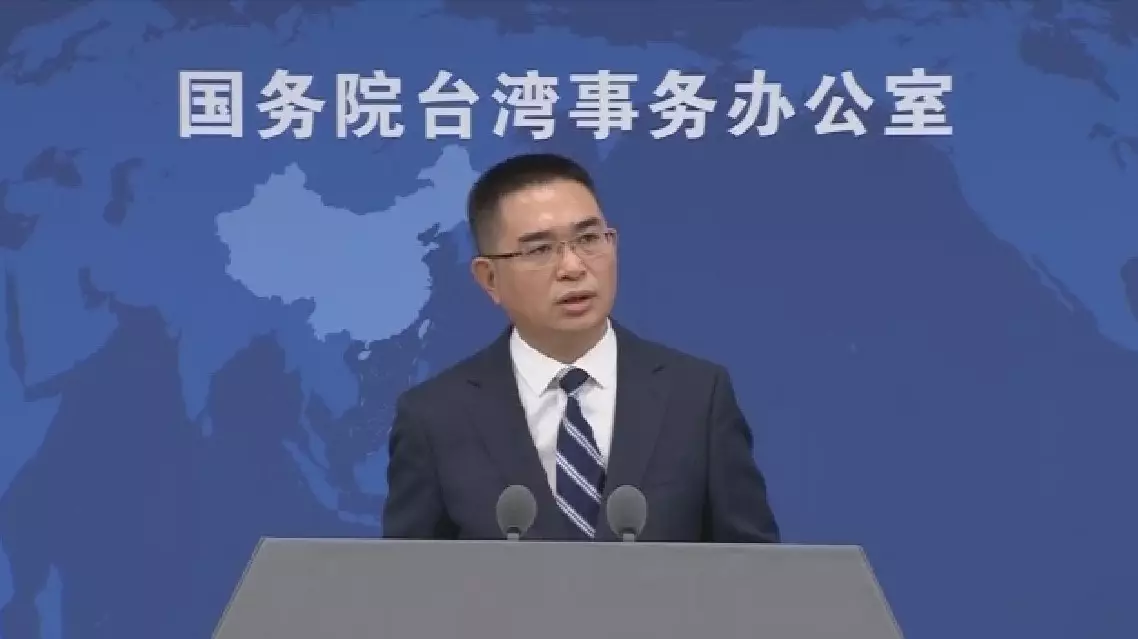
DPP major barrier to normalizing cross-Strait relations: spokesman
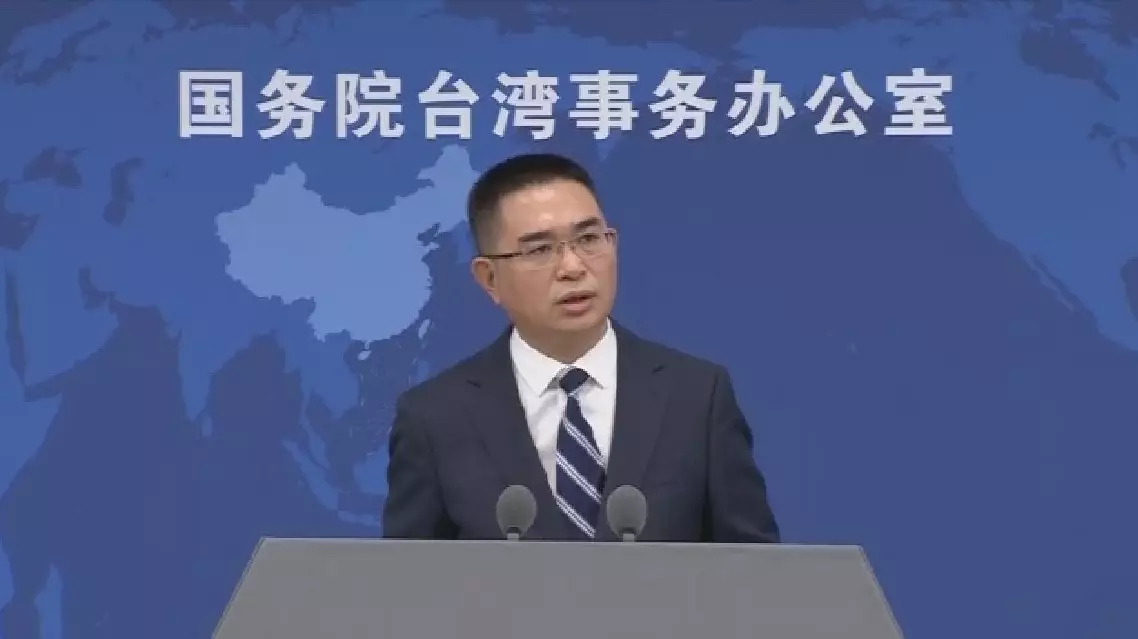
DPP major barrier to normalizing cross-Strait relations: spokesman
Over half of the population in war-ravaged Sudan are facing "acute food insecurity" or worse, a crisis that has been escalating since the outbreak of the domestic conflict between two rival military factions in the country in April last year.
Fighting between the Sudanese Army and its rival, the Rapid Support Forces paramilitary group, has killed tens of thousands of people and forced millions flee from their homes across much of the country.
According to the United Nations, 8.5 million people in the country are in emergency. The UN Food and Agriculture Organization (FAO) warned in March that the country is drowning in "the largest hunger crisis on the globe," and experts are worried that around 2.5 million people in the country could die from hunger by the end of this year.
The conflict has severely impacted major grain production regions in central and southeast Sudan, leading to a 46 percent year-on-year drop in grain production last year.
"Ever since the Sudan armed conflict erupted, it has been influencing growingly wider areas. The warfare has spread to many new areas so far this year, and the intense conflict makes it impossible for many aid organizations including FAO to provide humanitarian aid to war zones," said AbdulHakim Elwaer, assistant director-general of FAO.
Flatbread made of wheat flour is the major staple food for Sudanese people, but after the conflict broke out, many flatbread shops had to close due to a lack of flour, even in Khartoum, the capital of Sudan. "We once ran out of flour, and found another supplier later that helped us to go through the crisis. But now another problem is that the gas supply can only meet 7 percent of our needs. We contacted the gas company, and they responded that they could not provide help due to the conflict," said Awad Hussein, owner of a flatbread shop in Khartoum.
While the food price has been surging in Sudan, most local residents have lost their jobs after the conflict began, leaving many to rely on humanitarian aid from international organizations to survive.
"Life is so hard. We have no drinking water, and the flatbread shops are also facing water shortages. We are out of food and water, falling into despair. The prices are also surging. Products that used to cost only 1,000 Sudanese pounds now charge 10,000," said Sakina Ahmed, a local resident in Khartoum.
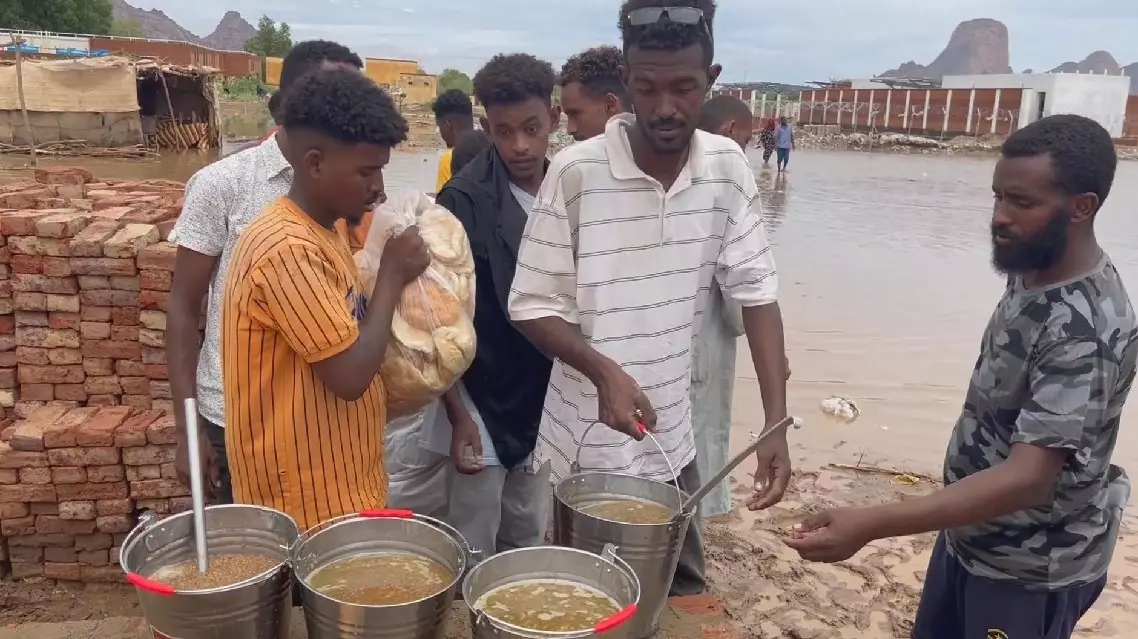
Sudan in severe food crisis as conflict continues
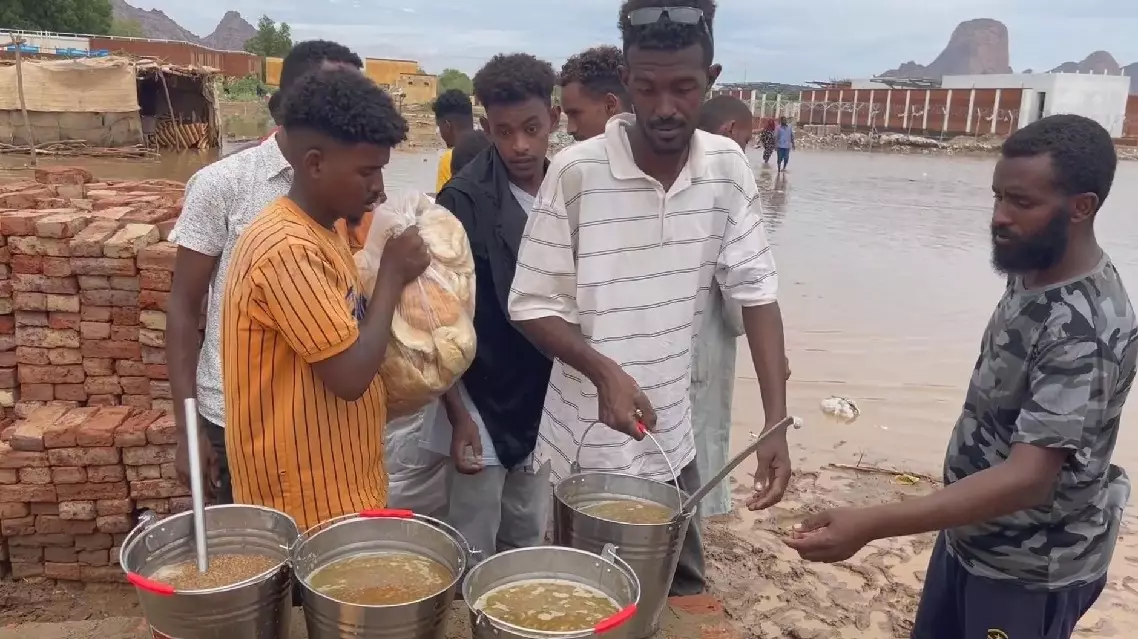
Sudan in severe food crisis as conflict continues




